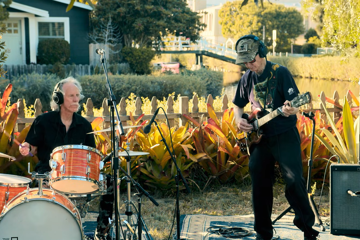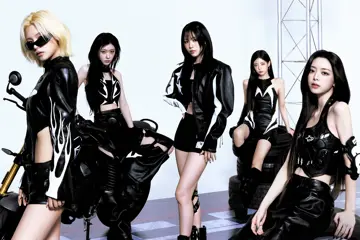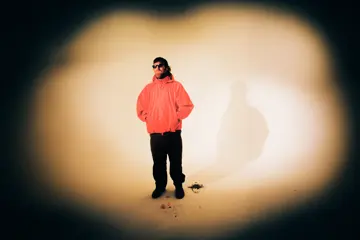BEIRUT

Beirut follows the Hollywood blueprint for international hostage negotiations: no matter the foreign climes, the best bet is to put things in the hands of attractive film-stars. And, so, in 1982 Beirut, the swap of a captured American civilian and a PLO terrorist is handled by Jon Hamm and Rosamund Pike, such paragons of beauty-standards that they essentially resemble Ken and Barbie.
Hamm’s square-jawed handsomeness is most interesting when it’s made part of his character, or lack thereof; Mad Men essentially a decade-long study of what a man can get away with when he looks like an astronaut. Here, though, the only evocation of Hamm’s greatest role is the Drunk Don Draper years: his hostage negotiator a (*deep sigh...*) hardbitten drunk, an alpha-male fallen on hard times. “He’s damaged goods, a frontrunner who stumbled,” says Larry Pine, character qualities spoken aloud in simple short-hand, contrast between the ruined man and the ruined city made plain.
This simplification is evident across the entire film; which is, at essence, an exercise in hammering a complex socio-political milieu into the rigid shape and familiar form of an action-thriller. Director Brad Anderson — best known for the radical-Christian-Bale-weight-loss psycho-thriller The Machinist and the pulpy Halle Berry B-movie The Call — hits all the beats hard, taking a pretty-disappointing script from Bourne scribe Tony Gilroy and making it thud.
Hamm runs from conflict to conflict, escaping bomb-blasts and assassination attempts and general gunfire, attempting to get at something like an action-movie’s truth. He's stuck in a role where he must deliver persuasive lines with his life on the line; his forcefulness carrying the surety of a man-on-a-mission.
Don't miss a beat with our FREE daily newsletter
There’s occasional dreamy flashbacks to the sun-dappled good-times of Beirut back in ’72, when Hamm had sideburns and hadn’t yet turned into a drunken wreck. But mostly there’s scenes where menacing Palestinians shout violent threats in scary subtitles, and Hamm must turn on the charisma, disarming the standoff with his film-star stuff. “Everybody got what they wanted!” Pine marvels, on wrapped-up-in-a-neat-little-package resolution; everybody, that is, except those hoping for a better movie.
SUMMER 1993

It’s one of the greatest depictions of childhood ever seen in cinema. Summer 1993 is a cine-memoir for its maker, debutante director Carla Simón, drawing from her own formative experiences. Its lead actors are six (Laia Artegas) and four (Paula Robles), which in itself is a cinematic rarity. Few films dare cast small kids in lead roles, but fewer still manage to really get into the way children see the world around them, and work through life with their limited critical faculties. Fewer, still, are the directors who manage to capture their pint-sized actors with such aplomb: Simón allowing Artegas and Robles to just ‘be’ in front of camera, then managing to balance this unrestrained naturalism with the storytelling devices of drama.
Following the death of her mother, an orphaned Artegas goes to live on the remote country property of her aunt (Bruna Casí) and uncle (David Verdaguer of 10.000km and Anchor & Hope). In an act merging real history with production location, Summer 1993 is shot on the actual property Simón ended up at, herself, as a six-year-old.
In a fashion reminiscent of Call Me By Your Name (which it sat next to, high atop Film Carew’s Top 30 Films Of 2017), it’s a fantastic work of sustained realist mise-en-scène, Simón knowing that it’s the details of environment that are evocative of distant memories of youthful summers. In turn, there’s real resonance in the way the children interact with their surroundings, and the season: swimming in rivers and pools, playing near-naked in the garden, picking plums from verdant trees; this forever soundtracked not by forceful score, but the thrum of insects.
The greater feeling summoned by all this is that of being a child; the mind-widening scenario of being thrown into a new situation, having to learn a whole new realm, make sense of this different world you’re now inhabiting. It’s also, in a greater sense, about what a child understands and doesn’t. Early, we infer that our central orphan has lost her parents to AIDS; she understanding the strangeness of loss, but not the social shame that comes with. The overheard words of adults don’t help her, only make her aware that there’s a whole other realm that she’s not yet privy, an adult language that she’s yet to learn to speak.
Adding another layer to this very-rich text is that Summer 1993 is not just about childhood, but about parenthood. Throughout, we see Casí and Verdaguer making and discussing parenting choices: What should a child be told? What should be kept from them? How to help a small person navigate complex emotions they can’t yet handle? Here, as a six-year-old processes death, grief, loss, and radical/unwanted change, her new guardians seek to help her through trauma, making the world around her — its grasses and bodies of water, its icecreams and hugs, its new parental figures and younger cousin— seem like a reassuring place.
THE WIFE
There’s been percolating Oscar buzz for Glenn Close’s titular turn in The Wife, since it premiered at Toronto last year. Close takes centre-stage in this grown-up drama, playing the long-suffering wife of a Roth-ian literary lion (Jonathan Pryce), an aging womaniser due to receive the Nobel Prize that’ll mark the culmination of his glittering career. At first, this drama seems like it’s mere playing out the ‘great woman behind the great man’ cliché, staging a noble example of the long-suffering wife. Instead, her suffering soon seems ignoble, various saucy truths surfacing as the journey-to-Sweden present is punctured, via unflattering flashback, by the dark and secretive past. Here is not just a woman consigned to a support role, but one who has been denied her own glory.
You can see why a story like this has lead to the self-fulfilling prophecy of an Oscar-chasing campaign: in a post #metoo climate, a movie about a woman’s talents being marginalised for the success of a sleazy patriarch is verily made for these times. There’s added resonance given that Close, at 71, has been nominated six times without ever winning an Academy Award. There’s only one problem with all this narrative-ginning: The Wife isn’t very good.
For all the lacerating critique of the literary-prestige boy’s-club that courses through Meg Wolitzer’s source-text, the to-screen translation plays as pat, cute, neat. Director Björn Runge — last seen making the 2011 Swedish prestige-drama Happy End — delivers a film whose rhythms are predictable, his script ticking metronomically not just between present and past, but between moments of scandalous, soap-operatic revelation and scenes of people yelling at each other. The Wife is theatrical in the most overt, laboured way; layered complexities found not in the filmmaking, only in Close’s performance.
DR. KNOCK

Jules Romains’ 1923 play Knock & The Triumph Of Medicine has been perennially adapted in France; most often for TV, but most famously, for cinema, in Guy Lefranc’s
1951 film. It’s a satire of the advent of advertising, its morality-play a cautionary tale on people being sold stuff they don’t need. A grifter arrives in a backwoods small-town as their new doctor, and sets out comically exploiting the locals’ rural inferiority-complex and self-obsessed hypochondria for his own financial gain; the whole town ending up in bed with phantom ailments, all hailing the wondrous new arrival of medicine.
Lorraine Lévy’s remake sets its tale in the post-war early-’50s, casting the huge French star Omar Sy as its central quack. A charitable reading of Sy’s starring turn is that it’s an example of colour-blind casting. But, less charitably, it feels like a failure to explore timely notions of immigration, racism, representation. Here, a black man arrives in an old-timey French village, the only non-white face in town, and no one makes anything of it; neither character nor filmmakers.
Putting Sy at the centre of a much-told tale would seem like a great opportunity reinterpret a tired text through a different cultural lens, but the concept of remaking a ye-olde yarn with a modern socio-political slant is something this Dr. Knock never picks up. Instead, at a time in which France is rife with racial tensions, it’s happy to run back the hoary tropes of century-old French farce, a cast of caricatures taken for a mirthful ride. Passing on the chase to be provocative, Lévy makes a meek movie, Dr. Knock never straying far from a central mode of forcibly feelgood.















